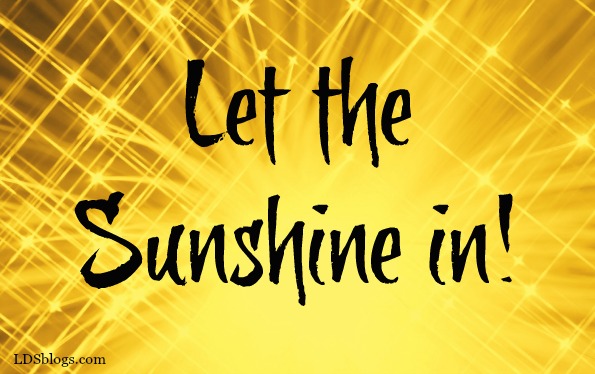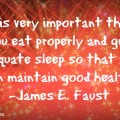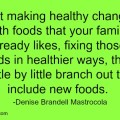For the past few weeks I have found it increasingly difficult to be motivated, stay on task, or to even work up much enthusiasm for the holidays. My mind kept wandering to different projects, unable to focus on just one thing, preventing me from getting anything properly done.
I was eating even though I wasn’t hungry, particularly sugary snacks that I don’t normally have trouble avoiding. This overload of sugar inevitably compromised my immune system, and before I knew it I was battling a sinus infection.
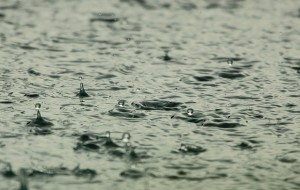 I love rain in its proper sphere, but it had rained, more on than off, for nearly two weeks, and I was beginning to feel depressed. The wet brown grass, and dreary skies were uninspiring, and the holidays seemed less festive without at least a light covering of snow.
I love rain in its proper sphere, but it had rained, more on than off, for nearly two weeks, and I was beginning to feel depressed. The wet brown grass, and dreary skies were uninspiring, and the holidays seemed less festive without at least a light covering of snow.
Then without warning this morning the sun burst forth in all of its glory, and I began to feel in control again.
I am not a sun worshiper by anyone’s standards. I don’t like hot weather, and my pale Irish complexion has made it imperative that I restrict my outdoor activities to certain hours when the sun is less of a threat. Regardless of our sun sensitivity however, we all need sun exposure on some level in order to maintain our health. If we do not have regular exposure of sunlight on our skin, we will begin to show signs of illness and or mental and physical distress.
The medical definition of SAD (seasonal affective disorder) is symptoms of depression coinciding with seasons of shorter days, and less sunlight. Other symptoms may include cravings for comfort foods, particularly high carb foods, feelings of depression, and a need for more sleep then you normally require.
Okay, I’m not sure why the medical community feels the need to give all human maladies complex or quippy names, unless it would be to satisfy our modern affinity for turning everything into a clever acronym, but it seems to me that it would make more sense to call this disorder SD (sunlight deficiency) instead of SAD since it is caused by a deficiency of sunlight, not so much by the change of the seasons.
After all, the calendar rolls around the year in Florida just as it does in Maine, or Alaska, but the incidence of SAD is far less noticeable in a place which boasts abundant sunshine, no matter which season we are in, than in a place where sunlight is in short supply several months out of every year.
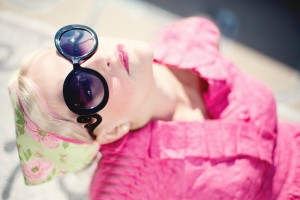 But regardless of what they call it sunlight deficiency is a real disorder that afflicts untold numbers of people every year.
But regardless of what they call it sunlight deficiency is a real disorder that afflicts untold numbers of people every year.
If we understand that sunlight provides essential elements to our bodies, just as vitamins, minerals, and phytonutrients are essential for our good health, then it makes sense that regular exposure to natural sunlight is also essential to our well-being.
But why does it affect some people more than others? That is a question less easy to answer, but I believe it is genetic. Like virtually every other disease of mind or body we seem to come already programmed to be more or less susceptible to different things. So the key is being aware of the symptoms and, if you find that you are affected by decreased sunlight, take steps to alleviate the problem before it slows you down.
In my experience the average Doctor, when confronted with a patient who is exhibiting depression like symptoms, is more likely to reach for the prescription pad then to suggest a more natural remedy. But unless the patient is suicidal this may not be the best approach.
We were fortunate that our pediatrician was a more forward thinker, and while her prescription pad was always there as a backup she was more than willing to explore other avenues first.
When my daughter started showing signs of a mild depression our doctor’s first step was to figure out what was causing it.
It is important to ascertain what the causes of the depressed feelings are before telling someone to start taking some pills. It might be as simple as ridding the body of junk foods or getting more sleep and/or sun exposure.
Our bodies were created with nature in mind. We were not created to get our life and sustenance from processed foods, a handful of pills, or from artificial lighting.
Granted, in some parts of the world at certain times of the year getting enough natural sunlight each day might be a real challenge. If you live in an area of limited winter sunshine, and you are adversely affected by it like I am, then you do need to do something, but there are less drastic alternatives available to you than the mind altering drugs that are often prescribed for depression.
 According to Dr. Michael Murray ND, one of the world’s leading authorities on natural medicine, light therapy is more effective than Prozac in treating major depression.
According to Dr. Michael Murray ND, one of the world’s leading authorities on natural medicine, light therapy is more effective than Prozac in treating major depression.
In his article an effective protocol used in clinical studies used specialized light boxes providing full-spectrum fluorescent tubes instead of regular tubes to simulate natural light. Patients were instructed to sit approx. 3 feet away from these lights for a minimum of 30 minutes to a maximum of 3 hours a day dividing the time between 2 sessions per day, morning and evening.
The antidepressant effect of this light therapy is thought to be due to the full spectrum light which helps to restore proper melatonin synthesis and secretion to the pineal gland which then leads to reestablishment of proper circadian rhythm to the body.
For a full report on SAD and depression, look for Dr. Murray’s feature article at his website.
In his article Dr. Murray specifically recommends three supplements, but as he states, there may be contraindications with St. John’s Wort if you are taking other medications, so be aware.
If it is a mild depression, or if the depression symptoms are being seen in a child, I would suggest a slightly different approach. Make an effort to get outside more, taking advantage of nature’s prescription, and watch the intake of processed and junk foods, especially sweets during the holidays, which have a dulling effect on our whole body system.
If that is not enough then you could supplement with Vit D3, a good quality Omega 3 supplement (for children I recommend an excellent product called Omega Swirls), and for mental calmness Suntheanine.
This approach was recommended to us by our local health food store proprietors and the effect on our daughter’s mild depression was very positive.
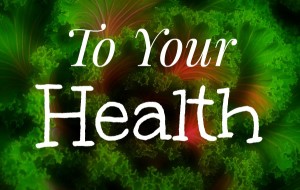
To read more of Denise’s articles, click here.
As with any supplements you must do your own research and find what works for you, but these are the things that have worked for our family.
Winter weather may at times keep us house bound, but there is no reason to let it affect us in a negative way. So let the sun in, and take control of your health and well-being in 2016.
Happy New Year to All!
**While the word of wisdom gives us basic guidelines for health, it leaves the interpretation of those guideline up to the individual members. This blog is not intended to replace your medical professional or the divine revelation of the Word of Wisdom, but rather it is practical knowledge that I have accumulated over the years in my own pursuit of a healthier lifestyle which I am passing along in the hopes that it will benefit others.**
About Denise Mastrocola
Denise is a Michigander turned Pennsylvanian, who has been writing stories since Elementary School. Denise won an award at the annual Lansing Youth Talent Show, when she was in 10th grade, for a short story entitled Procrastination is Fatal, but didn’t decide on writing as a career until she was 28 years old. While homeschooling her older children she spent 4 years working through a course from The Institute of Children’s Literature.
Through the years Denise’s children have had a variety of health issues, many of which have been linked to various sensitives; having spent more than 20 years researching and trying different things Denise has a boots on the ground view on healthier living.
Denise currently writes for 2 blogs and has several books in different stages of completion. She is planning to break ground in e publishing, and hopes to have her first Historical Fantasy book which is set during the renaissance, “Lisa, My Lisa?” ready by the first of the year.
Twitter •

